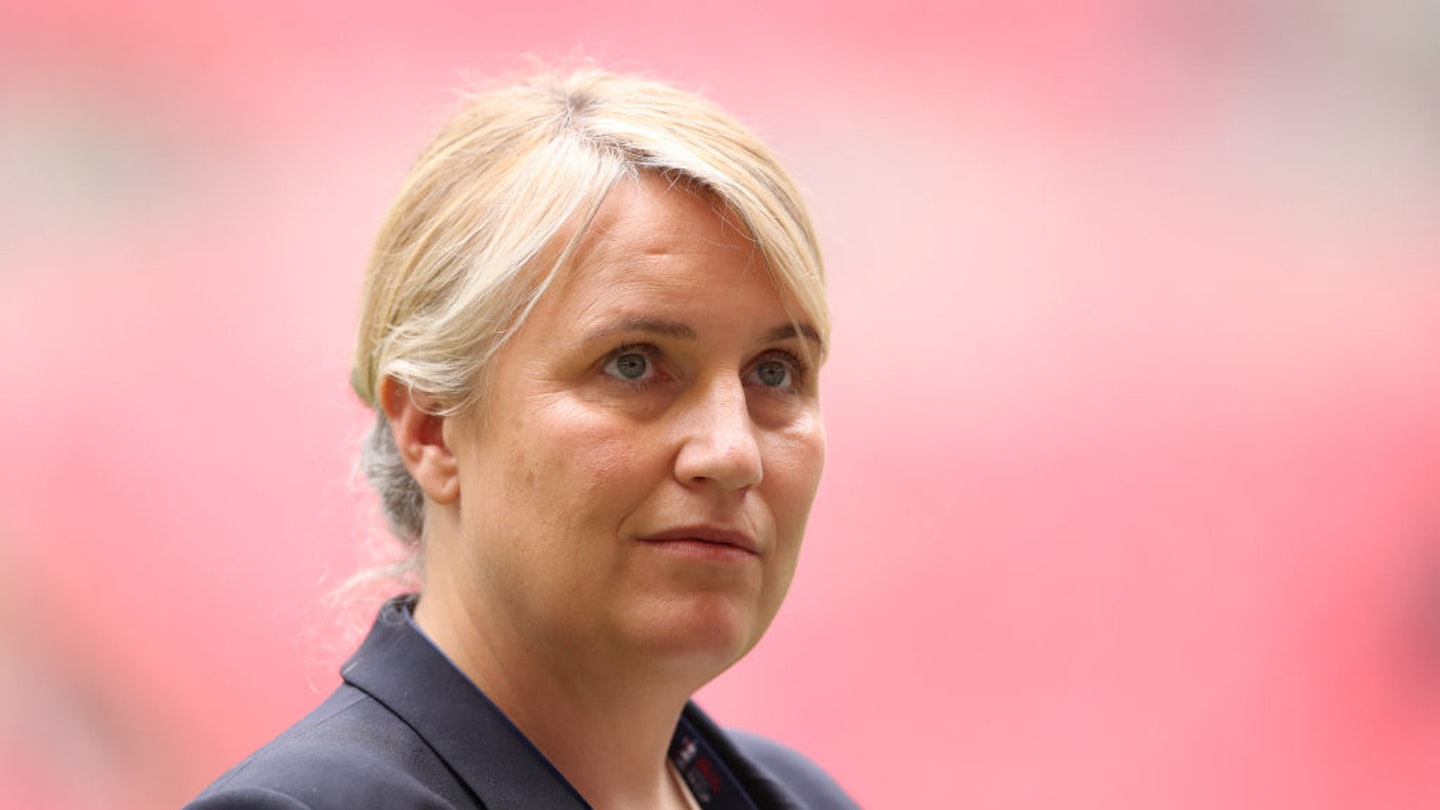Emma Hayes is a powerhouse. In her 10 years managing Chelsea Women, she has secured five Women’s Super League victories, four FA Cup and two League Cup titles. She is a long-standing symbol of the sturdiness of her club and has changed the face of women’s football, with four of her players (Millie Bright, Jess Carter, Fran Kirby and Bethany England) securing a victory for England in the Women’s Euros this summer.
But despite her long-standing success at Chelsea, Emma Hayes is not made of steel. Last night, she announced she’d undergone an emergency hysterectomy (a procedure to remove her womb) as part of her ongoing battle with endometriosis and would be taking time off to rest and recover after the intrusive and life-altering surgery.
‘I’m now in recovery and will need time and patience to return to full health,’ she wrote in a statement on Twitter. ‘To our fans, you've had to listen to me bellowing from the other side of the pitch every week. But now I want to hear you even louder because I'll be sitting at home watching the team on the television until my return.’
‘I know you'll respect that my health comes first and at this time I've got to prioritise what I need to do for me,' she continued. 'I fully expect to make a full recovery and I look forward to seeing you in the foreseeable future.'
Hayes has always been refreshingly vocal about her battle with endometriosis, which affects approximately one in 10 women in the UK. The condition can cause bloating, back pain, intolerably painful periods, chronic pelvic pain, and in the worst cases infertility. Yet, it takes a terrifying average of seven to 10 years to diagnose.
‘I can see why women go out of their minds before diagnosis – I can totally relate to that,’ she told the Telegraph last year. ‘I completely appreciate the suffering, but I refuse to let it get on top of me. I feel the pain, but I refuse to let it take over.’
Although it’s in direct opposition to Hayes’ usual ‘keep on keeping on’ mentality, it’s a relief to see her take time away from Chelsea to recover from her hysterectomy. And it's an even bigger relief to see her speak openly about her reason for taking time off when women’s health issues are so often whispered about.
Whether the after effects of an abortion, miscarriage, dire period pains or menopause, women undoubtedly deserve paid leave to recover from the trauma and pain our bodies go through. Yet, thanks to social stigma and career set-back fears, many of us rush back to work instead.
Previously, Hayes famously returned to Chelsea just eight weeks after giving birth to twin sons, one of them stillborn in 2018. ‘My biggest regret was coming back to work after eight weeks,’ she told the Guardian. ‘It’s nothing to do with the club because how do you step away from your job as a football manager for a year? What if they bring in an interim coach and after eight months they say: “We’ll stick with him or her.” The club would have given me maximum support, but it felt an impossible position,’ she said.
But as many fans on Twitter put it after Hayes' hysterectomy announcement this week: 'health comes first'. Women need to feel secure in taking sick leave for endometriosis or otherwise– and workplaces and the legal system should be altered to ensure that.
